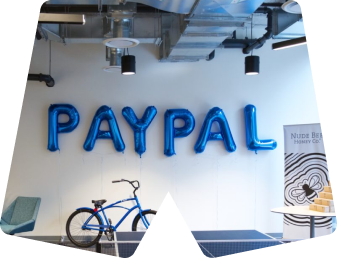
Hello!
Long-time subscribers may remember a format I used back in April called “Three Shorts,” where I’d write three short essays, rather than my usual long singleton.
It’s back, but with a twist! The goal is to unpack the strategy behind the news in as few bullet points as possible.
Enjoy!
Facebook’s entry into cloud gaming — smarter than it seems! 😄
What happened?
- Yesterday Facebook added the ability for users to play streaming games on their “Gaming” tab, which is used by 380 million people each month.
- It’s comparable to cloud gaming services from Google (Stadia), Microsoft (xCloud), and Amazon (Luna), except instead of charging monthly subscription to access a library of games, the games on Facebook will be free and ad-supported.
- In an oddly snarky announcement post, Facebook emphasized the limitations of their new service, noting that their cloud streaming technology “still has a way to go,” and that they only have “several” games which are latency-tolerant, such as card and strategy games.
- The new service will be available on the web and on Android devices, but not on iOS, thanks to Apple’s prohibition of game streaming apps.
Why? What’s the strategy?
- Facebook’s advertising business is dependent on people spending a lot of time on their properties.
- Games are a natural fit because they take up a lot of people’s time, so this is a market that Facebook has focused on for over a decade. (Farmville, anyone?)
- Their strategy has always been to be able to leverage their social graph — you can just type a friend’s name and they can start playing with you, no matter what device they’re on.
- This is why Faccebook always focused on casual games that can run in a web browser, like Farmville and Solitaire. But now, streaming gaming technology unlocks a much broader set of games that previously required specialized, expensive hardware.
- Unlike other streaming game services, Facebook isn’t competing to replace console or PC games. They’re just looking to expand the type of game they can offer to their casual users.
Will it work?
- The PC/console gaming community will not find this attractive, but that’s not the point (yet). Facebook is starting on the low end of the market — casual gamers who like to play with friends, but don’t want to buy special-purpose hardware.
- This is actually a better segment of the market to focus on for cloud streaming than Stadia, xCloud, and Luma have picked off. Less performance is required. The latest triple-A games aren’t expected. And playability with friends is the most important thing.
- The only question is — will casual gamers want to play the type of complex game that requires streaming, rather than HTML5? Yes, more than you might think. We’re not just talking first-person shooters. They also have solitaire, golf, and driving games.
Buzzfeed’s breakeven 2020 — painful 😔
What happened?
- For the first time since 2014, Buzzfeed is expected to make slightly more than they spend — somewhere between $250 and $300 million dollars.
- This is thanks to around $30m in cost reductions this year, and $80m in cost reductions over the past two years, which will bridge the gap despite revenue shrinking by as much as 20% compared to 2019.
- The news division is particularly hard hit, about half the size it was two years ago. Notably, founding editor Ben Smith left for the New York Times earlier this year.
Why? What’s the strategy?
- The days of easy venture capital are over for Buzzfeed, so they needed to balance costs with revenue.
- More generally, this marks the end of an era in media. In the early 2010’s, it was fashionable to focus on Facebook for viral distribution, and earn revenue through cheap, programmatic advertising. Most companies that employed a similar strategy are now either dead, have pivoted to subscriptions, or are merely limping along.
- Buzzfeed was the biggest and most iconic of these companies, so it’s notable that they’ve managed to achieve profitability.
Will it work out ok?
- If Buzzfeed can survive 2020, they’re in a good position going forward.
- The advertising market is likely to pick back up better than ever, assuming the economy doesn’t fall off a cliff thanks to COVID.
- Also, Buzzfeed’s shifting focus to commerce, by selling their own products and generating affiliate revenue, is beginning to work well.
- The key is whether they can retain a trusting, loyal audience that comes back to Buzzfeed directly. This goes against the ideals the company was founded on, but seems to be working well so far.
PayPal’s crypto adoption — inevitable 🤖
What happened?
- This week PayPal made official a bit of long-suspected news: they’re supporting cryptocurrencies on the platform.
- This is a big deal for two reasons: 1) they have nearly 350 million users who will soon be able to easily use crypto, and 2) it’s a symbolic moment for the company who’s original vision was to build a “new world currency.”
- To start, PayPal will support Bitcoin, Ethereum, Bitcoin Cash and Litecoin.
- The price of Bitcoin rose from ~$12k to ~$13k on the news, despite being a surprise to no one.
Why? What’s the strategy?
- As far as PayPal is concerned, crypto is simply another way to pay. The more popular it becomes, the more valuable and necessary it becomes for them to support it.
- PayPal’s model is to take a small % off every transaction, so it makes sense that they’d want as many types of transactions as possible to happen on their platform.
- The timing of this launch is interesting, considering earlier this summer it was rumored that Coinbase may go public later this year or early next. Perhaps this rumor was the final straw that caused PayPal to say, “enough is enough”?
Will it work?
- PayPal’s big advantage is their existing network of users and businesses, and the trust of their brand name.
- Not many people want to use bitcoin for their daily transactions, but if that changes — for example, if hyper-inflation becomes a problem — then PayPal will be in a great position to become the system of record.
- This is sort of like when Instagram added the stories format. It didn’t kill Snapchat, but it did put a dent in their growth. I expect the same to happen to Coinbase.
Thanks to Bryant Jefferson for help researching and writing this post!
What’d you think of this article?
The Only Subscription
You Need to
Stay at the
Edge of AI
The essential toolkit for those shaping the future
"This might be the best value you
can get from an AI subscription."
- Jay S.
Join 100,000+ leaders, builders, and innovators

Email address
Already have an account? Sign in
What is included in a subscription?
Daily insights from AI pioneers + early access to powerful AI tools










Comments
Don't have an account? Sign up!